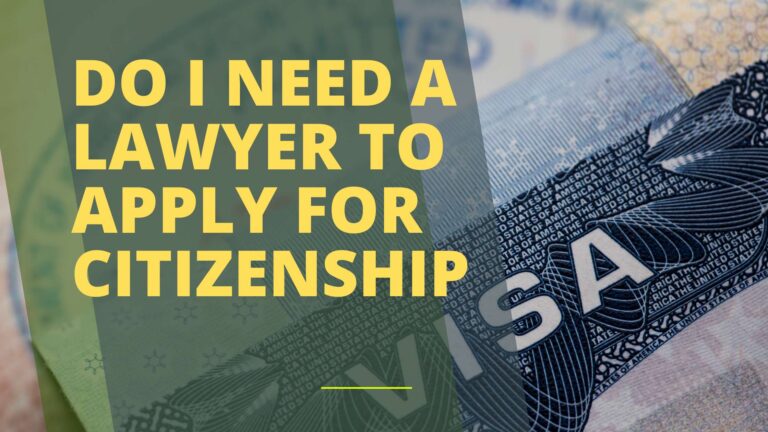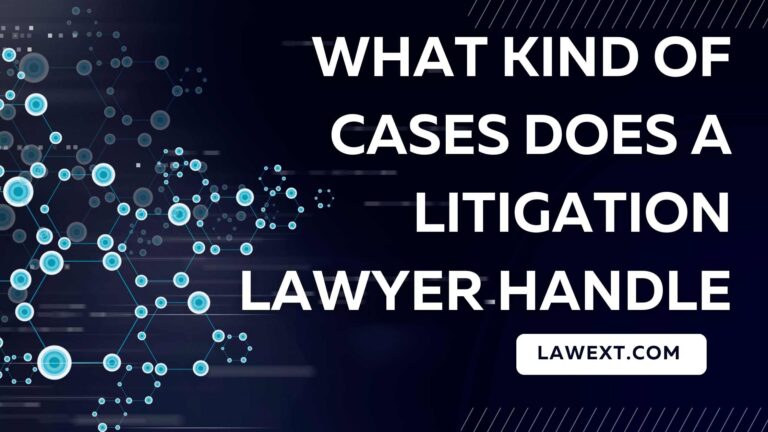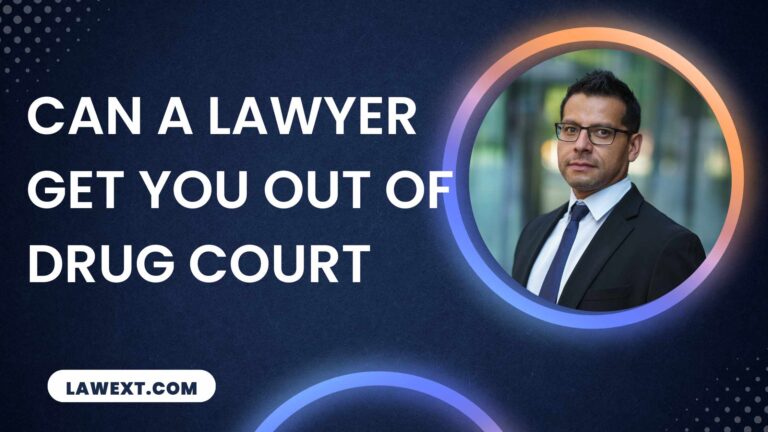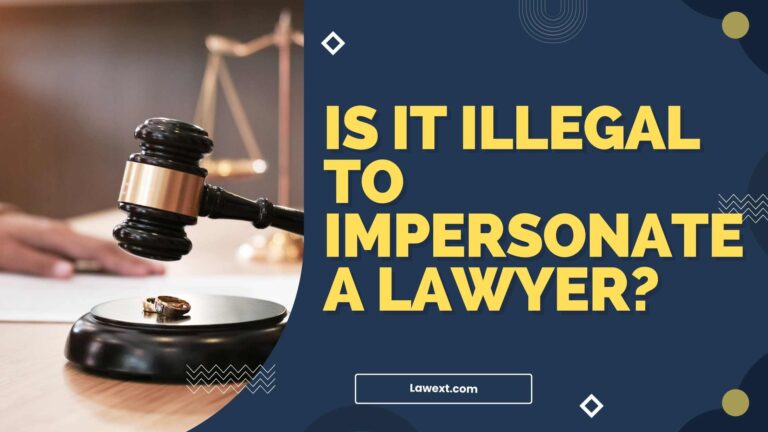What to Do When No Lawyer Will Take Your Case?

If no lawyer will take your case, you can explore self-representation or alternative dispute resolution methods. Here are some steps to consider when faced with this situation.
Table of Contents
Facing a legal issue can be overwhelming, especially when you struggle to find a lawyer willing to take your case. However, there are options available to navigate this challenging situation. We will discuss what to do when no lawyer will take your case and provide you with some helpful steps to consider.
What to Do When No Lawyer Will Take Your Case? there are still avenues to explore, such as self-representation or alternative dispute resolution methods. By taking the right approach, you can effectively deal with your legal matter and seek a favorable outcome.
Identifying The Issue
When faced with the frustrating situation of no lawyer willing to take your case, it is crucial to proactively identify the underlying issues. By understanding the reasons behind the lack of interest from legal professionals, you can take the necessary steps to address them and improve your chances of finding representation. In this post, we will explore two key aspects of identifying the problem: researching the legal merits and determining the necessary expertise.
Researching The Legal Merits
One of the essential steps in identifying the issue of why no lawyer will take your case is to thoroughly research the legal merits. This involves examining the strength of your claim and evaluating whether it has a solid foundation to stand on in the eyes of the law. Conducting extensive research on relevant statutes, precedents, and legal principles will help you make an informed assessment of the viability of your case.
Take the time to gather all relevant documents, such as contracts, agreements, or incident reports that pertain to your situation. This evidence will not only help you gather a clearer understanding of the legal merits of your case but will also be crucial if you decide to pursue representation in the future. By presenting well-organized and comprehensive information, you can demonstrate that your case is worth pursuing.
Determining Necessary Expertise
Another important aspect of identifying the issue when no lawyer will take your case is determining the necessary expertise required. Some legal matters may demand specialized knowledge or experience that not all lawyers possess. By identifying the specific area of law your case falls under, you can narrow your search for suitable legal representation.
Consider researching and reaching out to lawyers or firms that specialize in the relevant field to increase your chances of finding someone with the necessary expertise. Look for lawyers who have successfully handled cases similar to yours, as they will likely have a better understanding of the complexities and nuances involved. This targeted approach can help you find a lawyer who is willing to take your case and has the expertise to achieve a favorable outcome.
In conclusion, identifying the issue when no lawyer will take your case requires researching the legal merits and determining the necessary expertise. By delving deep into the legal aspects of your claim and seeking out lawyers with the knowledge and expertise in your specific area, you can overcome the challenge of finding representation and take the necessary steps towards resolving your legal matter.

Navigating The Legal System
When no lawyer is willing to take your case, navigating the legal system can feel overwhelming. However, understanding the legal process and exploring alternative dispute resolution can provide you with valuable options.
Understanding The Legal Process
In times of legal issues, it is crucial to have a basic understanding of the legal process. Familiarize yourself with the steps involved, such as filing a complaint, gathering evidence, and attending court hearings. Consult with legal resources, including self-help guides and legal clinics, to gain more insight.
Exploring Alternative Dispute Resolution
If traditional litigation seems unattainable, alternative dispute resolution methods like mediation or arbitration can offer a more amicable and cost-effective approach to resolving legal disputes. These methods empower both parties to actively participate in finding a resolution outside the courtroom.
Self-representation
When faced with the situation where no lawyer will take your case, you may find yourself considering self-representation. While it can be a daunting prospect, self-representation can provide a solution when all other options are exhausted. In this article, we will discuss the pros and cons of self-representation, as well as the crucial steps you need to take in order to prepare your case effectively.
Weighing The Pros And Cons
Before you commit to self-representation, it’s important to weigh the pros and cons. Taking on your own case can have its advantages, such as:
| Pros |
|---|
| 1. Cost-saving: By representing yourself, you can avoid hefty legal fees. |
| 2. Control: You have complete control over your case, including the strategies and decisions. |
| 3. Personal knowledge: As the primary source of information about your case, you possess valuable insight that can be beneficial. |
However, self-representation also comes with its fair share of challenges and risks:
| Cons |
|---|
| 1. Lack of legal expertise: Without proper legal training, you may struggle to navigate the complexities of the legal system. |
| 2. Time-consuming: Self-representation requires substantial time and effort to research, prepare, and present your case effectively. |
| 3. Emotional impact: Handling your own case can amplify stress and emotional strain as you face the challenges alone. |
Gathering Sufficient Evidence
One crucial aspect of self-representation is gathering sufficient evidence to support your case. Without compelling evidence, your chances of success may be compromised. Follow these steps:
- Identify relevant evidence: Determine what evidence is necessary to prove your claims or defenses.
- Document collection: Collect all documents, records, emails, or any other relevant evidence. Ensure they are organized and easily accessible.
- Witness testimony: Identify potential witnesses who can provide testimony supporting your case. Reach out to them for their cooperation.
- Expert witnesses: Consider seeking expert opinions or testimonies to bolster your arguments.
Preparing Legal Documents
Another essential aspect of self-representation is preparing the required legal documents. While it is always advisable to seek professional legal assistance, you can take the following steps to ensure accurate and comprehensive document preparation:
- Research document templates: Look for templates specific to your legal needs, ensuring they adhere to relevant laws in your jurisdiction.
- Review and customize: Carefully review the templates, making necessary modifications to address the specific details of your case.
- Seek feedback: Ask trusted individuals who are knowledgeable about legal matters to review your prepared documents and provide constructive feedback.
- Double-check for errors: Pay close attention to grammar, punctuation, and formatting to avoid any potential mistakes that can undermine your credibility.
While self-representation may not be the ideal scenario, it can be a viable option when no lawyer is willing to take your case. By understanding the pros and cons, gathering sufficient evidence, and preparing precise legal documents, you can navigate the legal process with greater confidence.

Credit: usalaw.com
Seeking Pro Bono Assistance
If you find yourself in a situation where no lawyer is willing to take your case, don’t lose hope. There are options available for individuals who cannot afford legal representation. One such option is seeking pro bono assistance, which refers to legal services provided for free or at a reduced cost to individuals with limited financial means. In this article, we will discuss how you can find pro bono legal services and the eligibility criteria you may need to meet.
Finding Pro Bono Legal Services
When it comes to finding pro bono legal services, there are various resources that can help you in your search:
- Local Bar Associations: Start by contacting your local bar association as they often maintain a list of attorneys who are willing to provide pro bono assistance.
- Legal Aid Organizations: Research legal aid organizations in your area, as they often offer pro bono services to those who qualify.
- Law School Clinics: Consider reaching out to law school clinics, where law students, under the supervision of attorneys, may be able to offer pro bono representation.
- Online Directories: Utilize online directories that specialize in connecting individuals with pro bono legal services.
Meeting Eligibility Criteria
While pro bono legal services are designed to help those in need, it is important to understand that there are generally eligibility criteria that must be met. These criteria can vary depending on the organization or attorney providing the pro bono assistance. Some common eligibility factors include:
- Income Level: Many organizations will consider your income level to determine if you meet their criteria for pro bono assistance. They may require you to provide proof of your financial situation.
- Case Merit: Legal aid organizations and pro bono lawyers often prioritize cases with significant merit or high potential impact.
- Legal Issue: Some pro bono services specialize in specific areas of law, so they may only be able to assist with certain types of legal issues.
- Citizenship/Residency: Certain pro bono services may have restrictions based on citizenship or residency status.
It’s important to thoroughly research and understand the eligibility criteria before seeking pro bono assistance. Take the time to gather the necessary documents and be prepared to provide any requested information. By meeting these criteria, you increase your chances of finding pro bono legal services that can help you with your case.
Advocating For Change
Engaging Local Legal Aid Organizations
If you’ve been struggling to find a lawyer willing to take your case, reaching out to local legal aid organizations can provide crucial support. These organizations are committed to providing legal assistance to individuals with limited financial resources, ensuring that access to justice is upheld for all. By engaging with these groups, you can tap into valuable resources to help navigate your legal challenges.
Supporting Legal Reform Initiatives
Another empowering step to take when faced with an unrepresented legal matter is to support legal reform initiatives. Through raising awareness, advocating for legislative changes, and participating in campaigns, you can contribute to improving the legal landscape for individuals in similar situations. By rallying behind reform efforts, you can be part of the push for a fairer and more accessible legal system for all.
Conclusion
If you’re in a situation where no lawyer will take your case, don’t lose hope. Consider seeking a second opinion from other attorneys, as different perspectives can make a difference. Additionally, explore alternative dispute resolution methods like mediation or arbitration.
Remember to keep records and documentation of your case to present a compelling argument. With perseverance and creativity, you may find a legal professional who is willing to take on your case.
Amelia Justiceberg, a distinguished legal luminary, thrives on the intersection of empathy and legal acumen. As a prominent family law attorney, she orchestrates compassionate resolutions amidst complex dynamics. Justiceberg's courtroom finesse and dedication to fairness define her practice. Beyond litigation, she ardently advocates for social justice, solidifying her reputation as an influential force in the legal landscape.






